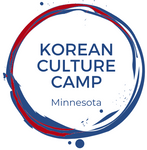KCC of Minnesota: A History
 Korean Culture Camp of Minnesota, one of the oldest culture camps in the United States, was started in 1977 by parents of adopted Korean children as a way to help continue their connection to their country of birth. In July of 1987, Korean Culture Camp became a Minnesota corporation with its mission “to promote and enhance the cultural identity and self esteem of Korean children and their families by providing an annual camp where the Korean culture will be experienced.”
Korean Culture Camp of Minnesota, one of the oldest culture camps in the United States, was started in 1977 by parents of adopted Korean children as a way to help continue their connection to their country of birth. In July of 1987, Korean Culture Camp became a Minnesota corporation with its mission “to promote and enhance the cultural identity and self esteem of Korean children and their families by providing an annual camp where the Korean culture will be experienced.”For one week these children are in the majority, surrounded by Korean culture, teachers and teen helpers, many of whom have become friends and mentors over the years. The camp has benefited from its close working relationship with the Korean Community in the Twin Cities. In 1991 Yoonju Park became the camp’s Korean director; it was the first year teachers were paid. In 1995 the paid positions of Camp Director and Education Director were formed and leadership was reorganized, but KCC is still run primarily by the 200 adult volunteers and 60 teen helpers who help keep the camp at an affordable rate.
Because of increasing numbers, 1992 saw the addition of an evening camp session to accommodate 107 children in addition to the 400 in the day session. In 1994 numbers exploded, with 350 children at the day session, (with a waiting list of 148) and 300 at the evening session, as well as 42 children in nursery care, but by 2000 KCC was back to one session of 300 campers, and since then, numbers have remained consistent at 250-300 campers in the 9:30-3:00 daily sessions which have been held the first week of August at Minnehaha Academy in Minneapolis since 1982.

As campers have matured, married and started families of their own, some are now sending their children to camp. In addition the local Twin City Korean community has discovered camp for their children. Because of this, self-esteem classes have changed their focus to a celebration of being Korean, without a specific adoption focus.
Even today some families travel from long distances, using their vacation time to spend one week in Minnesota eating kimchi and bulgogi, singing Korean children’s songs and playing drums, participating in dance or TaeKwonDo, exploring language, history, self esteem and art, led by Korean adults. Korean Culture Camp continues to have a significant impact on the families it touches, and hopefully it will do so for many years to come.
Learn About Adoption
Take the next step to learn about international & domestic adoption programs through Children's Home Society & Lutheran Social Services.
